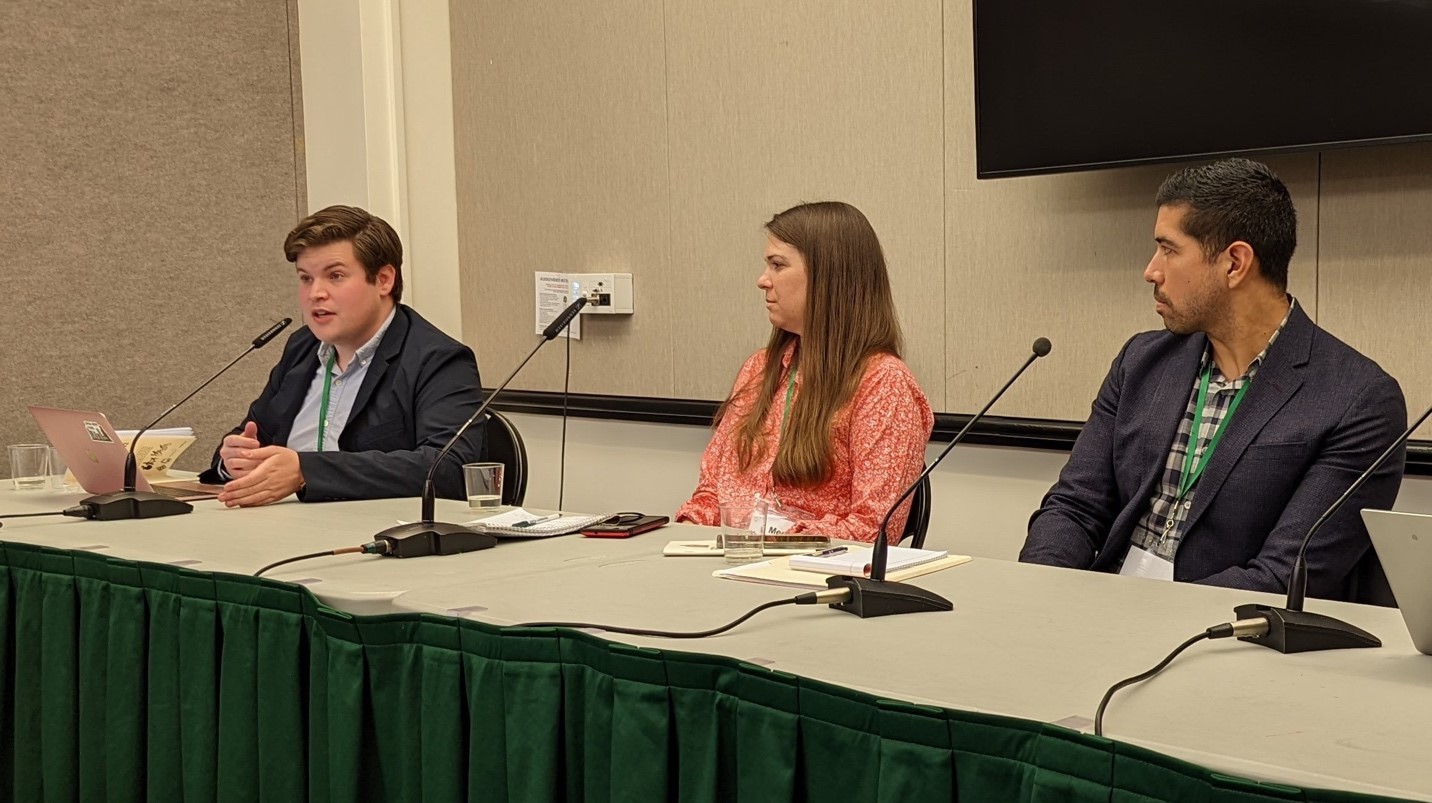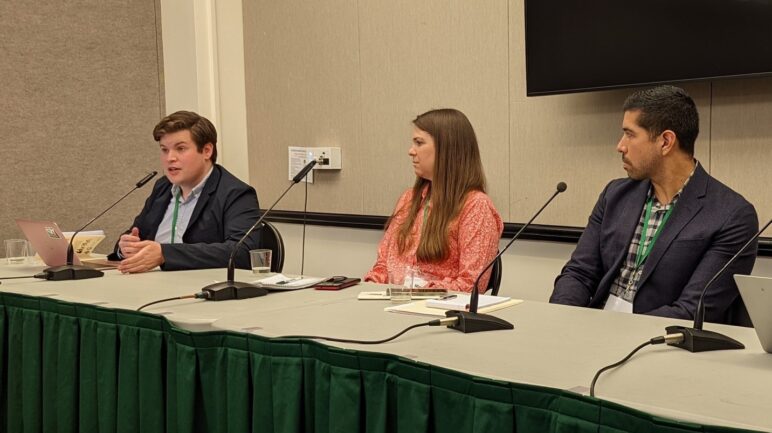The conversation shared below was part of the YIMBYtown 2022 conference, cohosted by Sightline Institute and Portland: Neighbors Welcome.*
All politics are local, and nowhere is that more apparent than in campaigns to reform city zoning codes to re-legalize missing middle housing. How are abundant housing advocates building coalitions with other housing advocates, navigating city hall, and finding the votes for zoning reform? What learned lessons can they share with fellow advocates in other cities who are gearing up for their own campaigns?
This panel features four organization leaders with front-row seats to policy reforms that address their cities’ housing shortage. They share their best practices for building durable coalitions for further successes in creating abundant housing, and they outline their groups’ recent wins and the strategies that led them to victory.
- Sam Diaz, executive director of 1000 Friends of Oregon, talks about the power of storytelling in policy advocacy, the passage of Portland’s Residential Infill Project, and the nonprofit’s anti-displacement work.
- Meg Fencil, director of engagement and impact for Sustain Charlotte, discusses power mapping elected officials to focus resources and efforts on “the moveable middle.” She celebrates the passage of the Charlotte Future 2040 Comprehensive Plan, which gets the city closer to zoning regulations that will ultimately improve economic mobility and land use.
- Dov Kadin, senior planner with Sacramento Area Council of Governments (SACOG) and co-chair of House Sacramento, advises employing public perception techniques to show that proposed changes can easily coexist with what’s already there. He talks about House Sacramento’s role in laying the groundwork for zoning victories, including eliminating parking requirements and the city’s push toward housing density in its updated general plan.
- Will Thomas, executive director of Open New York, talks about overcoming challenges to policy changes, such as New York City’s lack of a comprehensive plan and the “unwritten rule of not rezoning wealthy neighborhoods.” He celebrates their successful push for rezoning that has led to more mixed- and restricted-incoming housing around the city.
Related:
*YIMBYtown 2022 occurred April 11–13 in Portland, Oregon, the fourth annual gathering (after some COVID delays) of “Yes in My Back Yard” (YIMBY) community leaders, organizers, planners, policymakers, educators, and housing providers eager to share resources and strategies for building more affordable, sustainable, and equitable communities.









